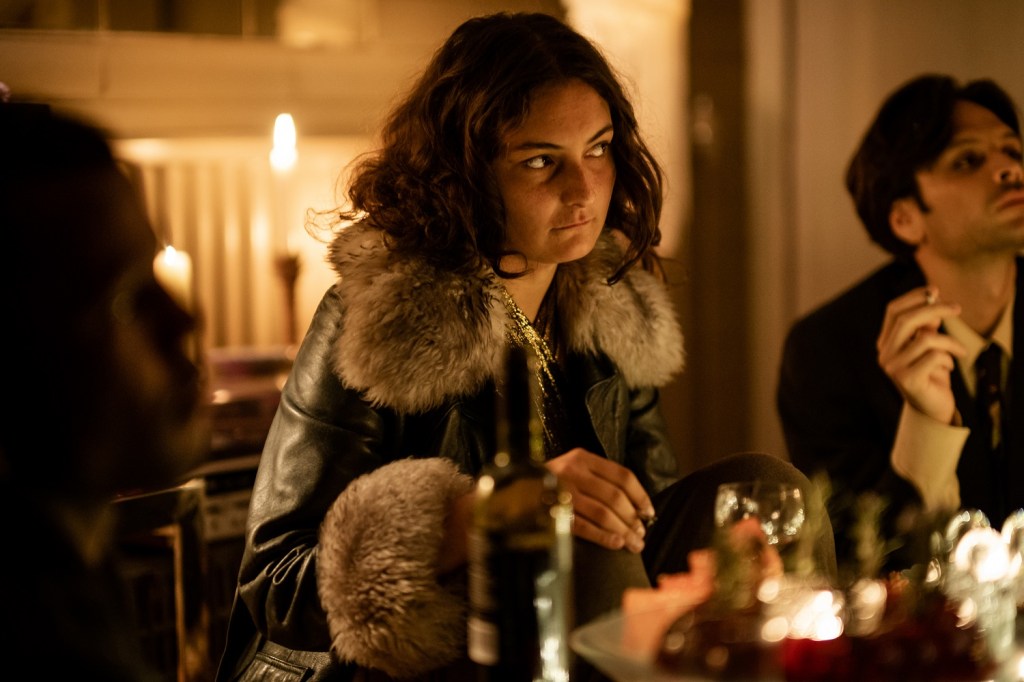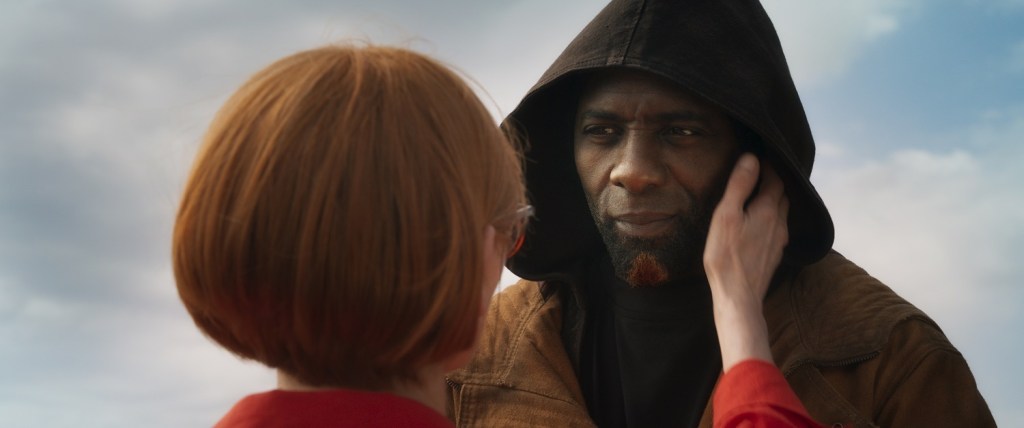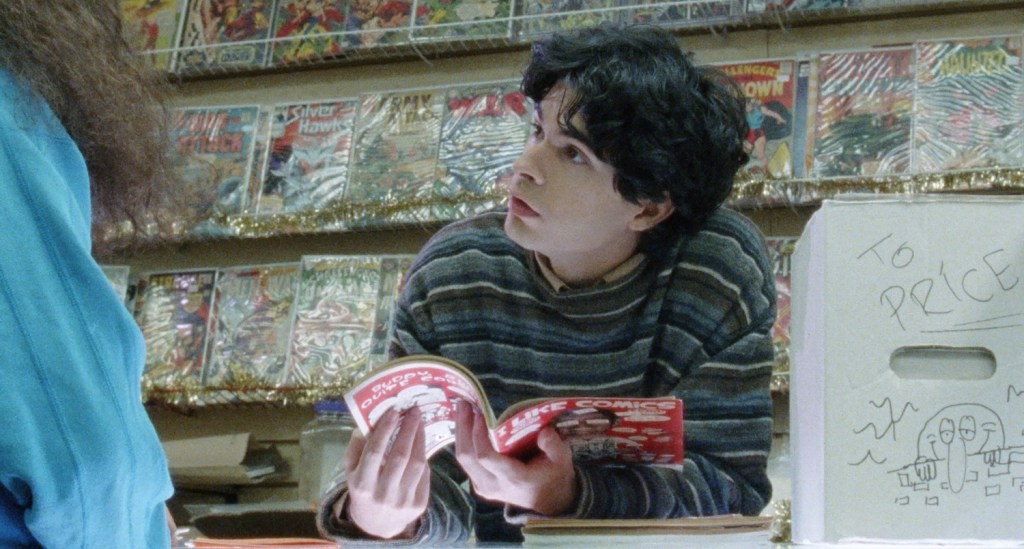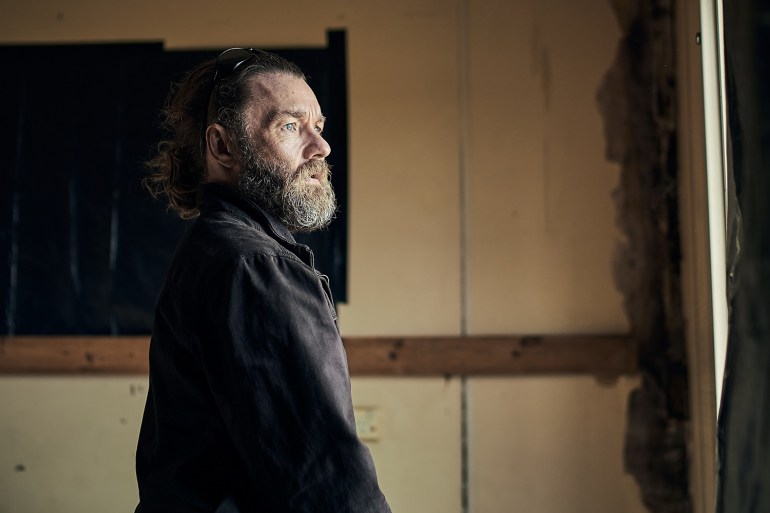Melbourne International Film Festival (MIFF) has a lot to celebrate this year: Not only is the event returning to metro cinemas for the first time since 2019, it is celebrating its 70th anniversary.
The milestone will be acknowledged in a variety of ways, including via a major retrospective and accompanying book, Melbourne on Film; cinematic homages to the festival from Ivan Sen, Justin Kurzel and Soda Jerk; and the inaugural XR commission from Isobel Knowles and Van Sowerine, Night Creatures, a virtual celebration of the festival’s “in between” moments – namely, the MIFF queue.
As previously announced, the festival will also open and close with two Melbourne-set features, Goran Stolevski’s sophomore feature Of An Age and Lachlan McLeod documentary, Clean.
On top of all that, the bill is back to pre-pandemic numbers, with a hefty 257 features, 102 shorts and 12 XR works to screen. This includes 17 world and 177 Australian premieres, including a record 61 titles from the Cannes Film Festival.
The festival will run in Melbourne cinemas August 4-21, but many of the positive introductions of COVID remain, namely a digital extension via MIFF Play August 11-28, featuring 105 films, and the MIFF XR Gallery, accessible for free online (and at ACMI).
MIFF artistic director Al Cossar tells IF he and his team wanted to use the 70th anniversary to the invite the city into the festival, and explore the connection between the two.
That is, to consider what MIFF means to Melbourne, and the festival’s place at “the beating heart of one of the world’s great creative cities.”
“There’s the risk to be a bit insular or inward looking at these kind of milestones. So what I really wanted to imagine with it, especially simultaneous to us coming back into into Melbourne cinemas, was to build something that was proactively pushing out – that welcomed people into MIFF maybe for the first time, but also had something there for the hardcore cinephiles, the people who have grown up with the festival and those generational devotees, which we’re so thankful for.
“There’s a really interesting story to tell about the festival itself that I think will be of interest to the community around it.”
This year will also mark the launch of the festival’s inaugural competition, MIFF Bright Horizons, with a prize of $140,000.

While years in the planning, Cossar says the competition forms part of the festival’s ambitions within its 70th anniversary celebrations to amplify new cinema. Its focus is on first and second-time feature filmmakers with “bold, interesting, singular voices”.
“We think it’s something that will hopefully be a global point of attention and significance with film festivals internationally, in terms of championing emerging and breakthrough talent.
“I think that’s something that’s common across MIFF’s DNA in a number of ways. If you look at moving pieces of what the festival is, you’ve got our Accelerator talent developmental lab; our Critics Campus lab, which is there in terms of developing professionally the world of emerging film critics and also a culture of response to film and filmmaking; and then the Premiere Fund as a minority co-financier to a slate of Victorian-connected features and documentaries every year.
“This very much fits into the whole worldview of talent amplification within MIFF.”
Among the 11 films to compete are two Australian features, Thomas M. Wright’s The Stranger, fresh from its debut in Cannes’ Un Certain Regard, and Alena Lodkina’s MIFF Premiere Fund-supported Petrol, which as IF has reported, will bow in Locarno.
The other nine films include: Natalia López Gallardo’s Robe of Gems, which won the Berlinale Silver Bear Jury Prize; Charlotte Wells’ debut feature Aftersun; Francisca Alegría’s The Cow Who Sang a Song Into the Future; Saul Williams and Anisia Uzeyman’s Neptune Frost; Martika Ramirez Escobar’s Leonor Will Never Die; Ariel Escalante Meza’s Domingo and the Mist; Un Certain Regard Coup de Coeur winner, Lola Quivoron’s Rodeo; Fran Kranz’s debut feature Mass, and 2021 Un Certain Regard FIPRESCI Prize winner, Laura Wandel’s Playground.
In addition, MIFF is also introducing this year the Blackmagic Design Australian Innovation Award: a $70,000 prize to acknowledge an individual local filmmaking talent – be it a key creative or head of department – from a project screening anywhere in the program.
“It’s recognising the best filmmaking talent that we have in Australia and again, looking to amplify their visibility, recognise their worth and celebrate their talents,” says Cossar.
As announced last month, a record 11 MIFF Premiere Fund projects will screen this year, including the aforementioned Of an Age and Petrol, Sara Kern’s Moja Vesna and Jub Clerc’s Sweet As, as well as documentaries Because We Have Each Other; Under Cover; Volcano Man; Greenhouse by Joost; The Endangered Generation?; Senses of Cinema and Franklin.

Among the films to join the Australian contingent are George Miller’s Three Thousand Years of Longing, direct from Cannes; Gracie Otto’s Seriously Red, Back to Back Theatre’s Shadow; Hannah Barlow and Kane Senes’ Sissy, and Stef Smith’s short-form series It’s Fine, I’m Fine, the only Australian project selected for Canneseries earlier this year.
In terms of the local documentary selection, MIFF will also screen Amiel Courtin-Wilson’s Man on Earth, which follows an American man with Parkinson’s disease who seeks to end his life; Karl Malakunas’ Delikado, which won the Sustainable Future Award at Sydney Film Festival; Eddie Martin’s Fire Front, which looks at the Black Summer through first-person archival; Jenny Ross’s Age of Rage – The Australian Punk Revolution, looking at Aussie punk in the ’70s and ’80s, and Andrew Leavold’s Pub: The Movie, about the “the unofficial mayor of St Kilda”, Fred Negro.
From Cannes is the Palme d’Or winner, Ruben Östlund’s Triangle of Sadness; Claire Denis’ joint Grand Prix winner Stars at Noon; Ali Abbasi’s Holy Spider, which saw Zar Amir-Ebrahimi win best actress; Park Chan-wook’s Decision to Leave, which won him best director; Jean Pierre and Luc Dardenne’s Tori and Lokita, which won the 75th anniversary prize, Hirokazu Kore-eda’s Broker and David Cronenberg’s Crimes of the Future.
Other international highlights include Elizabeth Banks’ Call Jane, Amanda Kramer’s Please Baby Please, Kim Se-in’s The Apartment with Two Women, and mockumentary feature Marcel the Shell With No Shoes On (see more of Cossar’s program tips below).
Kurzel, Sen and Soda Jerk’s 70th anniversary celebration works, known as ‘MIFF Signatures’, have each been prompted by the statement ‘the moment a film and audience meet’. They debuted at the program launch and will be presented as pre-screening content throughout the festival.
The Melbourne on Film retrospective will include around 25 films, launching with Emma-Kate Croghan’s 1996 rom-com Love and Other Catastrophes. Also on the line-up are a mix of classics, restorations and rare films such as John Hillcoat’s Ghosts… of the Civil Dead; John Ruane’s Death in Brunswick, Nadia Tass’s Malcolm, Richard Lowenstein’s Dogs in Space, Barbara Creed’s Homosexuality: A Film for Discussion and George Miller’s Mad Max and Violence in the Cinema…..Part 1.
The retrospective will coincide with the launch of book Melbourne on Film: Cinema That Defines Our City, with essays by Tim Rogers, Christos Tsiolkas, Sarah Krasnostein, John Safran, Osman Faruqi, Tristen Harwood and Judith Lucy. There will be also accompanying MIFF Talks sessions that will see filmmakers, writers and critics discuss the city on screen.
Other MIFF Talks sessions will see Bluey creator Joe Brumm in conversation Oscar winner Adam Elliot (Mary & Max) to discuss episodes of the hit ABC series, while Kurzel, one of this year’s MIFF Ambassadors, will appear alongside author Richard Flanagan to discuss his directorial work, The Sound of One Hand Clapping.
In terms of special programing, the Hear My Eyes event at the Astor Theatre will see Mick Harvey and Springtime re-score Andrew Dominik’s Chopper. Another MIFF ambassador for this year, Dominik will also screen his documentary projects with Nick Cave, One More Time With Feeling and This Much I Know to Be True.
Other MIFF ambassadors for 2022 include Rose Byrne; Uncle Jack Charles; Robert Connolly; Fayssal Bazzi, Leah Purcell, Joost Bakker, Chris Pang and Rachel Griffiths.

Some quick MIFF program highlights from Al Cossar:
- Funny Pages, directed former child star Owen Kline (The Squid and the Whale), which Cossar describes as a “Terry Zwigoff meets Noah Baumbach meets Safdie Brothers” – indeed, the Safdies produced the film. “It’s about a young man who’s an aspiring graphic novelist, and his mentor dies in a fairly shocking and blackly comic way. He puts all his energy and attention into an alternate mentor comic figure who turns out to be a very shonky personality, to say the least. It’s hugely entertaining. It’s a lot of fun. It’s quite grimy, but that one is absolutely worth seeing, for sure.”
- Close, by Belgian filmmaker Lukas Dhont, which jointly won the Grand Prix at Cannes and more recently, took out the Sydney Film Festival competition. “It’s one of those films you actually don’t want to ruin by talking too much about the narrative detail of it, but it’s such a beautiful, sorrowful, moving, affecting film. It’s really, really gorgeous.”
- Romanian film Metronom, which won Alexandru Belc the Un Certain Regard best director prize. “It takes this teen coming-of-age [story] and abrasively intersects it with themes of state control and interrogation. It’s a bit of a slow burn and just beautiful, considered storytelling.”
- Camera d’Or winner War Pony, from Riley Keough and Gina Gammell, set on South Dakota’s Pine Ridge reservation. “Again, it has coming-of-age themes in it, but it’s a very considered, thoughtful, really promising work as a debut film.”
- Falcon Lake, Charlotte Le Bon’s debut feature which premiered in Cannes’ Directors’ Fortnight. Another coming-of-age film, “but it’s almost imbued by this horror and supernatural mentality. There’s a real sense of fantastical ease around the fringes of that one.
- For the “strong of constitution”, Cossar recommends another Directors’ Fortnight film, De Humani Corporis Fabrica, from Véréna Paravel and Lucien Castaing-Taylor, set to play on Xtremescreen. “As documentary makers, they have a very singular and very amazing sense of how they recognise and tell the story of the world around them. This is a film that set across eight Parisian hospitals, and it’s imagined as almost treating the human body itself as a frontier and potentially almost like a direct cinema, in the way that a lot of the film is made up by stroboscopic cameras through some pretty grisly operations.”
- Sara Dosa documentary Fire of Love, which played Sundance. “It’s a documentary love story that does have a tragic ending, around Katia and Maurice Kraff, who were volcanologists and lovers. The film draws on the immense and amazing archive of their globetrotting travels all across the world, inside craters, the world of volcanoes, again, just this otherworldly sort of space that you’ve never really seen before.”
Full program and tickets: miff.com.au


